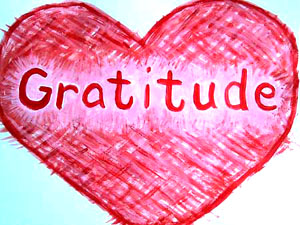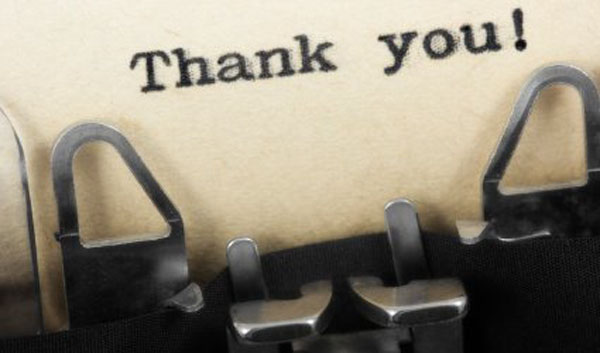Gratitude Doesn’t Suck
“Success is getting what you want. Happiness is wanting what you get.”
-Dale Carnegie, motivational speaker
and author of How To Win Friends & Influence People
Her smile was still that of a child. Cherubic, bright-eyed. Recently homeless, she had been molested and raped on the streets of Philadelphia after running away from an abusive home which had only offered her depression, suicide and heroin addiction. Wondering if her infectious smile was a front, I asked her what she had to be happy about with all the pain and loss in her life. “Big ol’ hoodies. Smokes on the sidewalk. Drum circles. The little things, Keith.” Again the smile.
Happiness is a lazy slug. Despite momentary ups and downs, “whether you win the lottery or are paralyzed from the neck down, after about three to six months you’ll have returned to your usual level of happiness,” according to a recent study. Moving the slug is possible, but the prod is often overlooked in pursuit of that happiness. Gratitude is the prod which will permanently shove your slug further up the happy scale.
New & Improved, Life! Now With 25% More HAPPINESS!
“Gratitude is the sign of noble souls”
-Aesop
 Dr. Robert A. Emmons is the Dungeon Master when it comes to the psychological benefits of gratitude. His book Thanks! is the most read on the topic and its corresponding study is cited throughout the clinical world. The study was elegantly simple. Two groups of people recorded moments in their lives. One group recorded things which they were grateful for, everything from the sunset through the clouds to the chance to be alive. The other group recorded only the hassles, which ran the gamut from Taxes to “burned my macaroni and cheese.”
Dr. Robert A. Emmons is the Dungeon Master when it comes to the psychological benefits of gratitude. His book Thanks! is the most read on the topic and its corresponding study is cited throughout the clinical world. The study was elegantly simple. Two groups of people recorded moments in their lives. One group recorded things which they were grateful for, everything from the sunset through the clouds to the chance to be alive. The other group recorded only the hassles, which ran the gamut from Taxes to “burned my macaroni and cheese.”
Dr. Emmons and his partner completed multiple rounds of the study to isolate variables, but the results remained consistent. People who were in the gratitude group “felt fully 25% happier – they were more optimistic about the future, they felt better about their lives.” Where does this happiness come from? I think it’s connected to a positive release of the illusion of control. We have little control over things like sunsets, taxes or the chance to be alive. Gratitude acknowledges that fact, but not in a way thats disempowers ourselves. Gratitude fosters a peaceful attitude of collaboration with something greater in which we are grateful for what we have earned and what has been bestowed upon us. Eventually, a certainty may grow that, along with the pain of life, there exists a level of benevolence.
Take My Wife…Please!
“Some people are always grumbling because roses have thorns; I am thankful that thorns have roses.”
-Anonymous
 Sure, gratitude can make a person happier. But what if they’re stuck with a jerk? “Extending…gratitude to our romantic partners can increase the benefit of positive thinking tenfold,” Dr. Sara Algoe told Science Daily. “Feelings of gratitude and generosity…benefit the one giving as well as the one on the receiving end.”
Sure, gratitude can make a person happier. But what if they’re stuck with a jerk? “Extending…gratitude to our romantic partners can increase the benefit of positive thinking tenfold,” Dr. Sara Algoe told Science Daily. “Feelings of gratitude and generosity…benefit the one giving as well as the one on the receiving end.”
Dr. Algoe studied factors of satisfaction and connection in over sixty-five couples in current committed relationships. The participants noted a positive effect on the levels of satisfaction and connection in their relationships which lasted, in some cases, days after the event which caused the expression of gratitude.
Gratitude will strengthen any relationship; loving or lousy. According to Dr. Algoe “Gratitude triggers a cascade of responses within the person who feels it in that very moment, changing the way the person views [their partner.] This is especially true when a person shows that they care about the partner’s needs and preferences.”
For those of us who want a better relationship, the simple act of thanking our partners can give it to us. The longer a relationship lasts, the greater chance that we begin to take each other for granted. The little things don’t disappear, so much as become day-to-day. Gratitude for even one of those little day-to-day actions can shake the dust off of life with our partner. They feel appreciated and we begin to recognize that we have someone who still cares about us. In terms of positive re-enforcement, that positive feeling that you give back to your partner for their kindness increases the chances that they will do it again later.
I’d be Grateful, Too. If I had a Body Like That!
Gratitude and good health have a solid correlation. Dr. Emmons’ study found that in the main gratitude group “even did almost 1.5 hours more exercise a week” than the alternate groups. Further, when Dr. Emmons branched the study to encompass those with Neuromuscular Disorders, the same grateful practice had the same result. Participants “were found to be more satisfied with their lives overall, more optimistic about the upcoming week and crucially, were sleeping better.” Good sleep is key to good health.
According to Web MD, gratitude brings a sense of peace that reduces stress and boosts the immune system. Thus, “you can live longer by being grateful with who you are today” while still striving for better health. As a therapist I find that body image is one of the areas of life in which we all lack gratitude. So much of that is due to unfair comparisons with glamorous illusion. It is that lack of gratitude for your body, fixation on its flaws, which will keep you from having the very body that you desire. It will keep you from the gym, keep you believing that your body is an unchangeable, unattractive lump. Being grateful for the look of your face, or hands, one simple body part—or even a quality like speed, stamina or good general health—focuses on assets. Assets will get you moving.
Forget Gratitude, I Want Money!
“Be thankful for what you have; you’ll end up having more.
If you concentrate on what you don’t have, you will never, ever have enough.”
-Oprah Winfrey
In Jean Chatzky’s book, Ten Commandments of Financial Happiness, she writes that happiness only marginally increases based on income. Gratitude for said income, as noted by a leading personal finance site, can increase happiness much more than marginally. The difference? “Gratitude is coming from a place of being thankful for what we have.”
Wanting to change your financial environment is healthy. “But, be grateful for the little things first,” the financial educators caution, because gratitude is the foundation of change. If we are only focused on what we lack, we overlook the strength which we need to make changes. “Thus, be grateful for the meal on the table now matter what it is, then focus on what you can do tomorrow.” Be grateful for the qualities that you have which brought the meal in the first place; employable, valuable skills. Being grateful for those skills will help ensure that you find a job that is the best fit for you emotionally, not just by dollar signs.
Ok, Fine…so How Do I Become More Grateful?
“Gratitude makes sense of our past, brings peace for today,
and creates a vision for tomorrow.”
-Anonymous
 The best thing about the practice of gratitude is that it can be, and should be, tailored to fit your life. “A friend of mine writes a letter every Sunday on what she is grateful for and hangs it on her refrigerator as a reminder for the week,” one financial educator offered, “Some say prayers or blessings while others thank the universe and earth for providing an environment of abundance.”
The best thing about the practice of gratitude is that it can be, and should be, tailored to fit your life. “A friend of mine writes a letter every Sunday on what she is grateful for and hangs it on her refrigerator as a reminder for the week,” one financial educator offered, “Some say prayers or blessings while others thank the universe and earth for providing an environment of abundance.”
I’ve had clients make gratitude lists or gratitude journals. One person stuck sticky notes around as constant reminders. Thanks to social media, one could tweet or post their gratitude for the world to see. Interestingly, the practice itself is key, not so much the destination. Though I thank someone specific, most gratitude experts agree that “it does not matter who you thank (other than yourself), as long as you are thankful.”
The how to is simple. Just say “Thank You,” mean it and stick to it. Start today. I’m sure someone will ask you what you’re thankful for. Try to be sincere this time. I will too. In fact, since there can never be too much gratitude, I offer this site as a free practice zone. Go ahead and tell the world something you are thankful for, right there in the comments. If it’s a real shy one, go ahead and email me.
Gratitude is power. Power to change by accepting what we have. Counter-intuitive, but true. There is no shame in appreciating someone else, or something else giving you aid or asset. In fact, it’s the first step towards using it well. Go be thankful. Use your power well.
K


